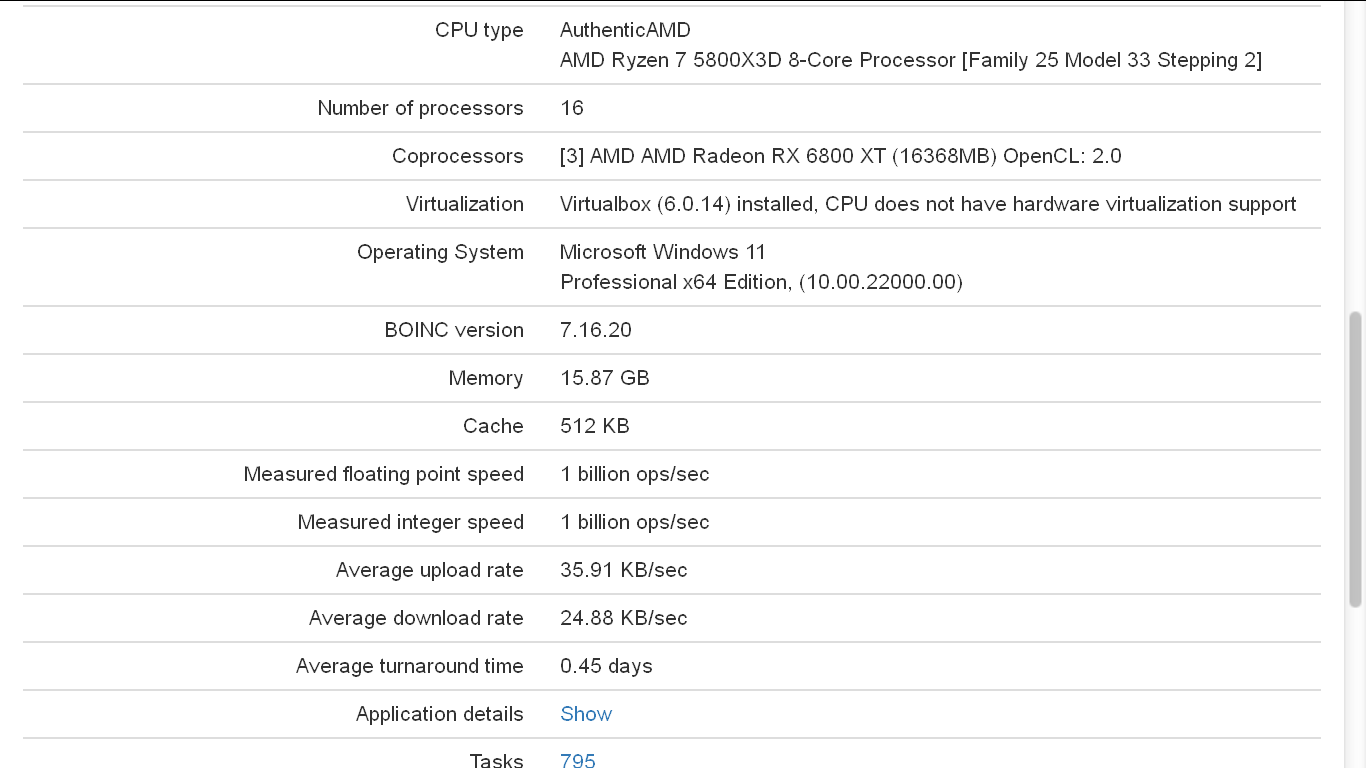Ryzen 7 5800X3D Surfaces In MilkyWay@Home Database
AMD's upcoming L3 cache-heavy chip
Thanks to a new listing on MilkyWay@Home (via Tum_Apisak), we have our first third-party benchmark of AMD's new Ryzen 7 5800X3D processor, which has yet to be released. However, according to AMD, the new 3D V-cache technology built into the chip promises to offer up to 15% better gaming performance.
MilkyWay@Home is a BOINC platform -- similar to Folding@Home, that harnesses the power of multiple PCs volunteered by a dedicated community to create one gigantic supercomputer for processing a highly accurate 3D model of the Milky Way Galaxy. This benchmark doesn't resemble real-world performance, and we don't have any CPU comparisons for competing Alder Lake options from MilkyWay@Home. So don't take these results too seriously.
Specs show that the system packing the Ryzen 7 5800X3D is in the same system with 16GB of memory and a Radeon RX 6800 XT graphics card. The system runs on Windows 11 Pro but states that virtualization is not supported. The reading is probably an error on Microsoft's part, as most AMD motherboards come with virtualization disabled at the BIOS level, which you can enable manually. The L2 cache is also specified at just 512KB since the software doesn't list the L3 cache for processors. However, we already know that the Ryzen 7 5800X3D has 96MB of L3 cache.
Performance measurements state that the Ryzen 7 5800X3D system can deliver floating-point and integer speed performance of one billion operations per second. Additionally, the average processing rate consists of 11.09 GFLOPS for the vanilla separation workload, 492.80 GFLOPs for the OpenCL separation workload (which utilizes the 6800 XT), and the N-Body simulation with an average processing rate of 272.02 GFLOPS.
Comparisons against this score are incredibly vague at best. However, according to MilkyWay@Home's official CPU performance charts, the Ryzen 9 5950X scores 11.07 GFLOPS, the Ryzen 5 3600 scores 16.59.
Hopefully, we'll get more benchmark results with the Ryzen 7 5800X3D from a reputable benchmarking program sooner than later. Unfortunately, MilkyWay@Home isn't suitable for benchmarking, explaining the rather wonky comparisons.
Get Tom's Hardware's best news and in-depth reviews, straight to your inbox.

Aaron Klotz is a contributing writer for Tom’s Hardware, covering news related to computer hardware such as CPUs, and graphics cards.
-
VforV ReplyHowever, according to AMD, the new 3D V-cache technology built into the chip promises to offer up to 15% better gaming performance.
Again superficial journalism at it's best.
It's not up to 15%, it's on average +15%. It's up to much more depending on the game/test. In the case of the shown slides, up to +40%.
Here you go mr. so called tech jurno:
-
Olle P The given comparison numbers are a bit confusing. The R5 3600 is at 16.6 ~50% better than R9 5950X (at 11.1)!?!Reply
... compared to the R9 5900X.VforV said:It's not up to 15%, it's on average +15%... -
VforV Reply
That was always the claim, since they 1st showed Ze3D in 2020, nothing changed.Olle P said:
... compared to the R9 5900X. -
Olle P Reply
Sure, but rarely mentioned. When somebody just say that "the 5800X3D is 15% better" it's implied by the listener that the comparison is to the 5800X, not the 5900X.VforV said:That was always the claim, since they 1st showed Ze3D in 2020, nothing changed.
